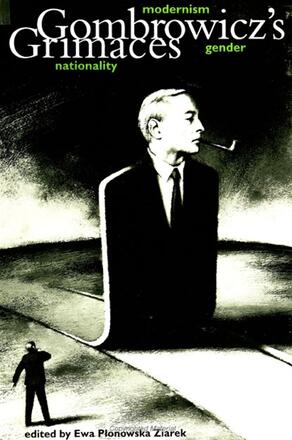
Gombrowicz's Grimaces
Modernism, Gender, Nationality
Alternative formats available from:
Examines Gombrowicz’s modernist aesthetics in the context of his critique of nationalism, his exploration of queer eroticism, and his interest in hybrid and subaltern identities.
Description
This timely and much needed critical study is devoted to the writing of Witold Gombrowicz, one of the most important Slavic writers in the twentieth century. Written from a variety of theoretical perspectives, ranging from poststructuralism to queer theory and postcolonialism, this book examines the complexity of Gombrowicz's texts in the context of the current reappraisals of the mixed legacies of modernism. By situating Gombrowicz's work in relation to Eastern and Western European as well as Argentinean cultures, Gombrowicz's Grimaces rethinks the significance of literary modernism in light of philosophical modernity, queer sexuality, subaltern identities, and limits of national culture. Starting with the considerations of Gombrowicz's aesthetics and his philosophical interests, this book addresses the ways in which the experience of cultural displacement—Gombrowicz's exile in Argentina and France—informs his literary career, and ends with a discussion of the cultural implications of Gombrowicz's philosophy of form for his critique of nationalism and the explorations of queer eroticism.
Ewa Plonowska Ziarek is Associate Professor of English at the University of Notre Dame. She is the author of The Rhetoric of Failure: Deconstruction of Skepticism, Reinvention of Modernism, also published by SUNY Press.
Reviews
"The essays engage Gombrowicz through a variety of theoretical and disciplinary perspectives, from poststructuralist theories of the text to chaology, and from postcolonial criticism to queer theory. The application of recent theoretical frameworks to the analysis of Gombrowicz's work does not appear ostentatious. Quite to the contrary, these essays reveal often subtle anticipations of contemporary perspectives in Gombrowicz's work.
"Despite differences in focus, disciplinary approach, and theoretical frame, the individual essays complement each other very well, fleshing out Gombrowicz's problematics through a collective effort. This book is glued together by a strong form of intertextuality, evident not only at a thematic level (there is creative agreement among the various authors regarding the important issues and emphases in Gombrowicz), but also at a theoretical level (concepts from Deleuze, Kristeva, chaos theory, borderline studies, queer theory, etc. , keep reappearing). " — Marcel Cornis-Pope, Virginia Commonwealth University
"This book provides a significant contribution to the critical articulation of Gombrowicz's work in the terms of the current debate on the political and cultural implications of literary form, national identity, and sexuality. As an interdisciplinary work the book expands the study of one of the best Slavic authors into the fields of psychoanalysis, philosophy, gender, and ideology. " — Vladislav Todorov, University of Pennsylvania